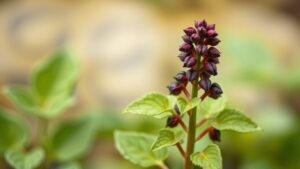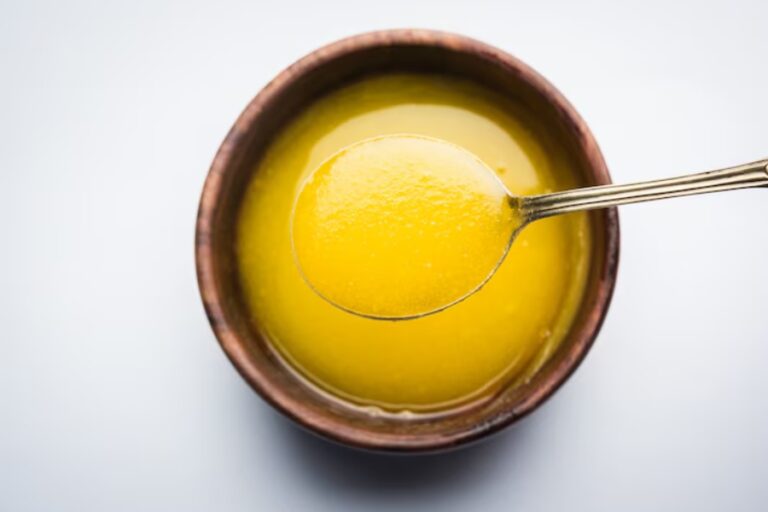Plantain herb, or Plantago Major, is more than just a common weed—it’s a powerhouse of nutrients and healing properties. Packed with vitamins A, C, and K, along with minerals like calcium and potassium, it boosts immunity and supports general health. Traditionally, it’s been used to soothe skin irritations, ease coughs, and calm upset stomachs. Its mild, earthy flavor makes it easy to add to meals or remedies. There’s much more to uncover about this humble plant.
What Is Plantain Herb?
Though often mistaken for the banana-like fruit, plantain herb is a leafy green plant with a long history of medicinal and culinary use. Its origins trace back to Europe and Asia, but it now grows worldwide, thriving in lawns and meadows.
Plantain herb identification is straightforward—look for broad, ribbed leaves forming a low rosette and slender flower spikes rising from the center. Unlike its tropical namesake, this hardy plant belongs to the Plantago family, with Plantago major being the most common variety.
Its leaves have been used for centuries in traditional remedies, often brewed into teas or applied topically. Recognizable through its resilience, it pops up even in harsh conditions, making it a familiar sight for foragers and herbalists alike.
Nutritional Profile of Plantain Herb
Plantain herb offers a notable nutritional profile, packed with essential vitamins like A and C.
It contains high levels of minerals, including calcium, magnesium, and iron, supporting general health.
Additionally, its antioxidant properties help combat oxidative stress in the body.
Rich in Vitamins
While many leafy greens get the spotlight, plantain herb quietly packs a surprising vitamin punch that rivals some of the most popular superfoods. Its leaves are loaded with vitamins A, C, and K, which support vision, immunity, and blood clotting.
Plantain’s nutrient density makes it a standout, as these vitamins work together to improve general health. The presence of vitamin C boosts iron absorption, adding to its vitamin absorption benefits.
Unlike processed supplements, the vitamins in plantain herb come naturally, making them easier for the body to use. Even a small handful of fresh leaves can provide a meaningful dose of daily nutrients.
For those seeking a simple way to enrich their diet, plantain herb offers an accessible, nutrient-packed option without the fuss of exotic ingredients.
High Mineral Content
Beyond its impressive vitamin content, plantain herb also delivers a robust mix of minerals that support everyday health. The plant absorbs nutrients efficiently from soil enrichment, making it a powerhouse of essential minerals like calcium, magnesium, and potassium. These nutrients aid in bone strength, muscle function, and mineral absorption, ensuring the body gets what it needs naturally.
| Mineral | Benefit | Food Comparison |
|---|---|---|
| Calcium | Supports bone health | Like a cup of milk |
| Magnesium | Eases muscle tension | Similar to almonds |
| Potassium | Balances fluids | Close to a banana |
| Iron | Boosts energy | Comparable to spinach |
Rich in these minerals, plantain herb offers a simple way to improve daily nutrition without complex supplements.
Antioxidant Properties
Since many people look for natural ways to fight off cell damage, the antioxidant power of plantain herb stands out as a key benefit. Free radicals, unstable molecules that harm cells, contribute to aging and illness.
Plantain herb contains compounds like flavonoids and phenolic acids that neutralize these harmful molecules, offering strong cellular protection. Studies suggest its antioxidants could reduce oxidative stress, a major factor in chronic diseases.
Unlike synthetic supplements, plantain provides these benefits in a natural, balanced form. Regular consumption, whether as tea or in meals, might help the body defend against environmental toxins and internal imbalances.
Its mild taste makes it easy to incorporate into daily routines, supporting long-term health without harsh side effects. This makes plantain a practical choice for those seeking gentle, effective antioxidant support.
Traditional Uses of Plantago Major
Plantago major has been used for centuries in various cultures for its medicinal properties.
Traditional remedies often included it for wound healing, respiratory issues, and digestive discomfort.
Many communities also valued it as a natural remedy for skin irritations and infections.
Medicinal Applications
Though often overlooked as a common weed, *Plantago major*, or broadleaf plantain, has been a trusted remedy in traditional medicine for centuries. Its leaves and seeds are valued for their ability to support the immune system boost, helping the body fend off infections.
The herb’s anti-inflammatory effects make it useful for soothing irritated skin, minor wounds, and insect bites. Whenever applied as a poultice, it reduces swelling and promotes healing.
Internally, plantain tea has been used to ease respiratory discomfort and digestive issues. Rich in compounds like aucubin and allantoin, it supports tissue repair while calming irritation.
Its mild, earthy taste makes it easy to incorporate into remedies. This humble plant continues to be a go-to for natural relief, proving its worth beyond its weedy reputation.
Cultural Remedies
Across different cultures, *Plantago major* has earned a place in folk medicine for its versatile healing properties. Indigenous healing practices often feature the plant as a remedy for wounds, burns, and insect bites, applied as a poultice to soothe irritation.
In European folklore medicinal traditions, it was brewed into teas to ease coughs and digestive discomfort. Native American tribes valued its leaves for drawing out toxins, while in Asia, it was used to support respiratory health.
The plant’s widespread use highlights its trusted role in natural care. Even today, its accessibility and gentle effectiveness keep it relevant in home remedies.
These traditions reflect a shared belief in its healing power, passed down through generations as a reliable ally in wellness.
Skin Health Benefits of Plantain Herb
Since skin can react to irritation, dryness, or minor wounds, plantain herb offers gentle relief with its natural healing properties.
Rich in compounds like allantoin and tannins, it soothes and repairs damaged skin while reducing inflammation.
- Wound healing: Plantain accelerates tissue repair, making it useful for cuts, scrapes, or burns.
- Skin irritation relief: Its anti-inflammatory properties calm rashes, bug bites, or eczema flare-ups.
- Moisture retention: The mucilage in plantain leaves locks in hydration, easing dry, flaky skin.
- Infection prevention: Mild antimicrobial effects help keep minor wounds clean.
Applied as a poultice, salve, or infused oil, plantain herb provides a natural alternative for everyday skin concerns.
Its versatility makes it a staple in herbal primary aid, especially for those seeking gentle, plant-based care.
Respiratory Health Support
| Benefit | How It Works |
|---|---|
| Soothes throat | Coats irritated tissues, reducing cough triggers |
| Reduces mucus | Loosens congestion for clearer breathing |
| Eases inflammation | Calms bronchial passages, aiding recovery |
The herb’s gentle action makes it a reliable choice for respiratory discomfort, whether from allergies, colds, or persistent conditions. Its versatility guarantees relief without harsh side effects.
Digestive Aid Properties
While many herbs offer digestive benefits, plantain stands out for its ability to support the gut in multiple ways. Its soothing properties help ease discomfort while promoting gut health improvement.
The herb’s natural compounds reduce irritation and support smoother digestion, making it a gentle remedy for bloating relief.
- Soothes irritation: Plantain’s mucilage coats the digestive tract, calming inflammation.
- Eases bloating: Its mild diuretic effect helps reduce water retention and gas.
- Supports regularity: The fiber content aids in maintaining healthy bowel movements.
- Balances gut flora: Plantain could foster beneficial bacteria growth, enhancing general digestion.
For those struggling with digestive discomfort, plantain offers a natural, gentle solution without harsh side effects. Its versatility makes it a reliable choice for daily gut support.
How to Use Plantain Herb in Cooking
Though often overlooked in the kitchen, plantain herb brings a mild, earthy flavor to dishes while packing in its digestive benefits. Its tender young leaves work well in salads, soups, or stir-fries, while dried leaves make a versatile plantain herb seasoning for roasted vegetables or meats. For those exploring culinary plantain recipes, the herb pairs well with garlic, lemon, and olive oil.
| Use Case | Preparation Tip |
|---|---|
| Fresh Salads | Chop young leaves finely for texture |
| Soups & Stews | Add during the last 5 minutes |
| Herb Seasoning | Dry and grind with salt |
| Tea Infusion | Steep fresh leaves in hot water |
| Stir-Fries | Sauté with garlic and oil |
The herb’s adaptability makes it easy to incorporate into everyday meals.
Making Plantain Herb Salves and Poultices
Since plantain herb’s soothing properties work marvels on irritated skin, turning it into salves or poultices offers a natural way to ease discomfort.
These DIY plantain salve and homemade poultice recipes harness the herb’s healing power for minor cuts, bug bites, or rashes.
- Simple Salve: Infuse plantain leaves in olive oil, then mix with beeswax for a skin-protecting balm.
- Fresh Poultice: Crush leaves into a paste, apply directly, and cover with a clean cloth for quick relief.
- Dried Herb Option: Powder dried plantain, mix with water or honey, and spread on affected areas.
- Oil Infusion: Soak leaves in oil for weeks, strain, and use as a base for creams or wound care.
These methods let anyone tap into plantain’s gentle, effective benefits without harsh chemicals.
Precautions and Side Effects
Plantain herb is generally safe for most people, but like any natural remedy, it comes with a few precautions. Some individuals might experience allergic reactions, especially when sensitive to plants in the Plantaginaceae family.
Symptoms like itching, rash, or swelling should prompt discontinuation. Dosage concerns also matter—excessive internal use could cause digestive discomfort, such as nausea or diarrhea.
Pregnant or breastfeeding individuals should consult a healthcare provider before use, as safety data is limited. Those on medications, particularly blood thinners or diuretics, should exercise caution due to potential interactions.
Always start with small amounts to test tolerance. While plantain is widely regarded as gentle, paying attention to the body’s signals guarantees safe and effective use.
Proper sourcing prevents contaminants, further reducing risks.
Bottom Line
Plantain herb, or Plantago major, offers impressive health benefits backed through both tradition and modern research. One study found that its leaves contain up to 10% mucilage, a compound known for soothing irritated tissues. Whether used in teas, salves, or meals, this humble plant supports skin, respiratory, and digestive health with minimal side effects. Its versatility makes it a must-have for natural wellness enthusiasts seeking gentle, effective remedies.





